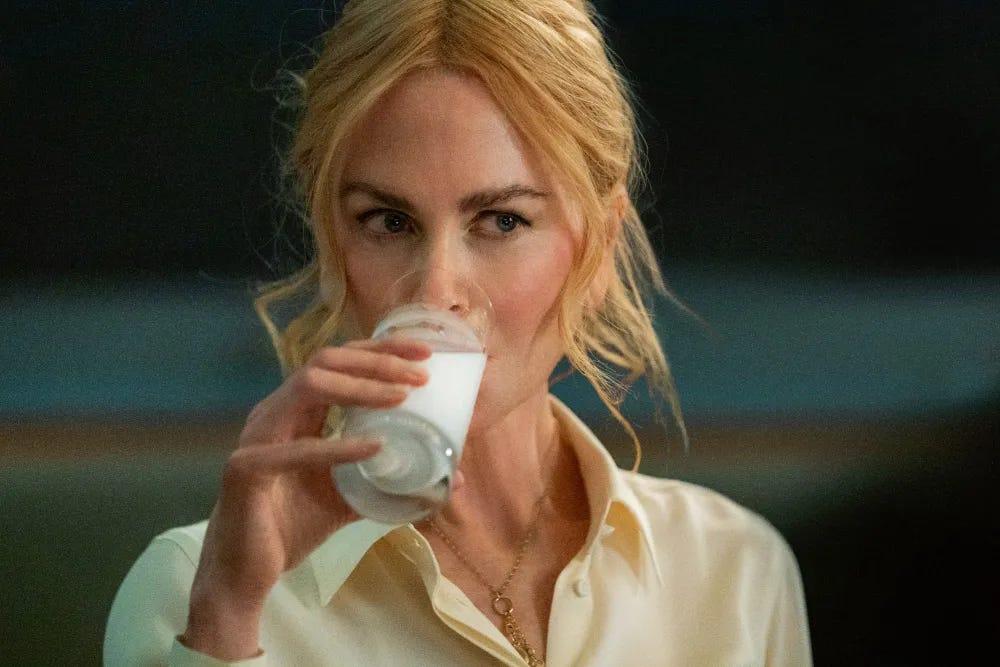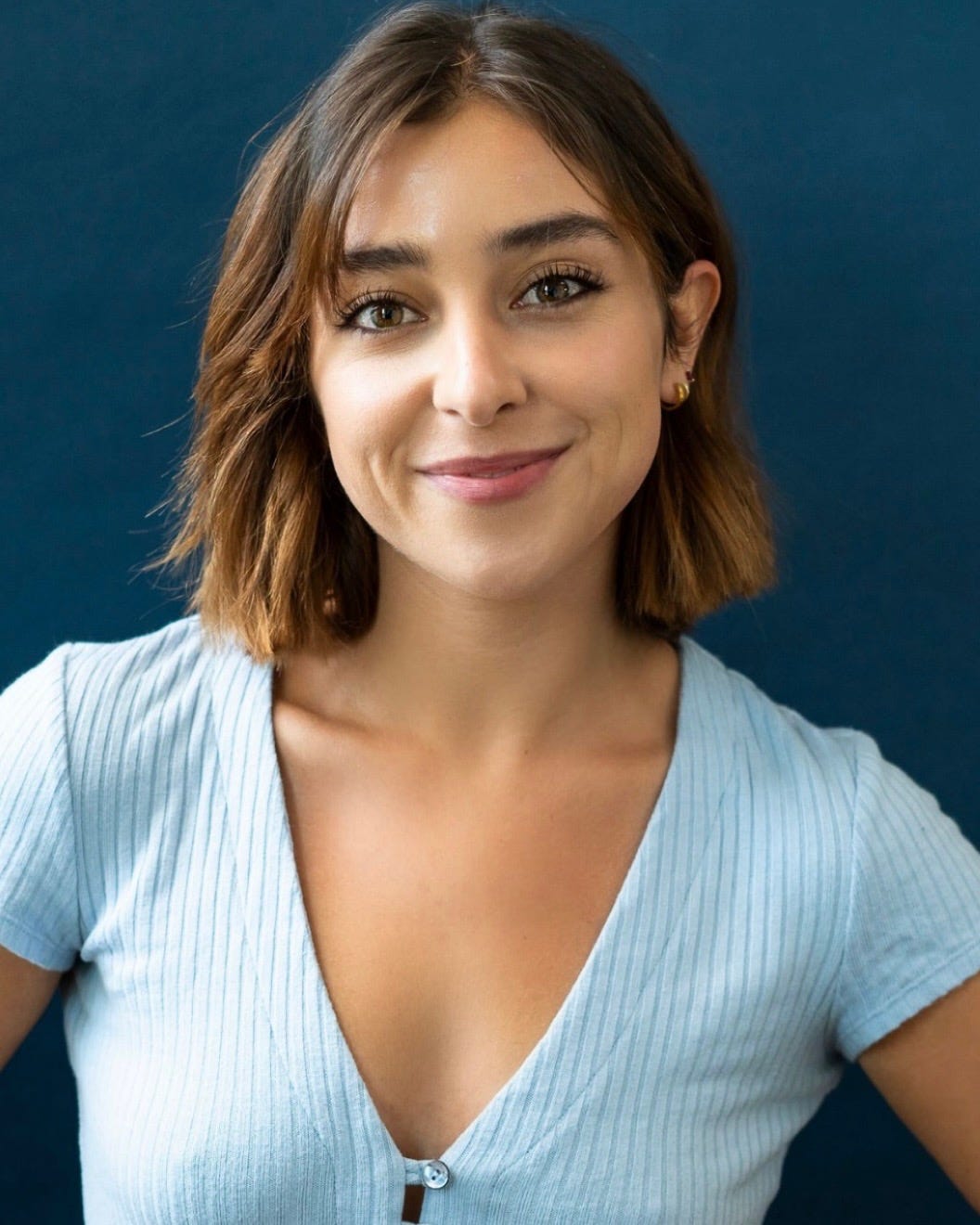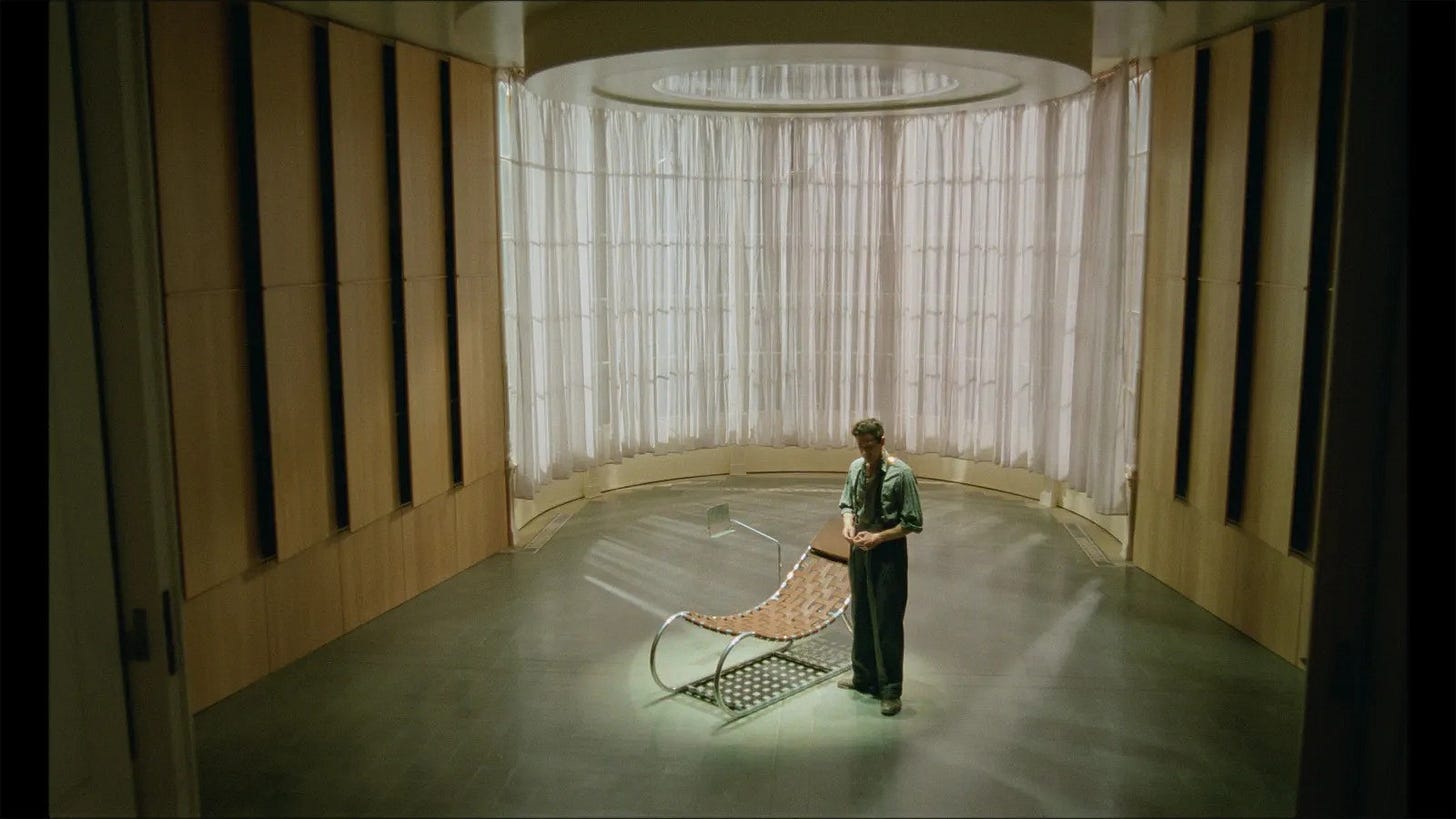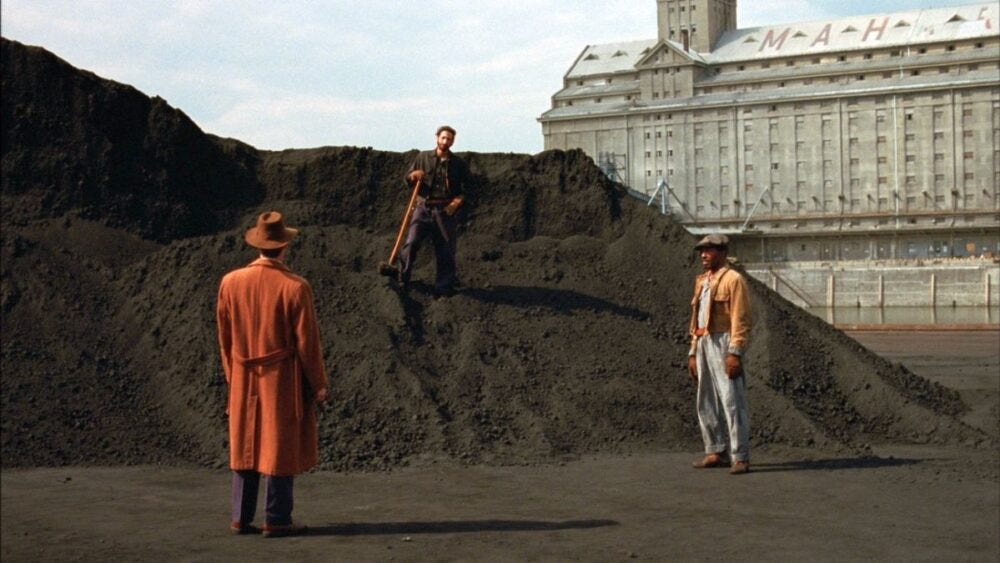Q&A with Maddie Browning
Just in time for the Oscars, I sat down with the associate producer of the "The Brutalist," which is nominated for 10 Academy Awards including Best Picture.
Bold, provocative, and three-and-a-half hours long, The Brutalist is a monumental achievement in independent filmmaking that has garnered quite a bit of interest in the 2024 awards season. It’s been nominated for an Oscar for directing, acting, cinematography, score, screenplay, editing, and Best Picture, though we’ll have to wait until this Sunday to see what it wins!
I was certainly struck by this film, which is why I was grateful for the opportunity to chat with Maddie Browning, an associate producer on the film. Maddie also worked on the recent Nicole Kidman film Babygirl, and she has several films lined up for 2025. We talked about her journey through the film industry, her work on The Brutalist, and the importance of media literacy in a fast-moving world.
Tell me how you found your way into the film industry. Did you always know that you wanted to be a producer?
I stumbled my way into the film industry. I studied acting at NYU, and I graduated right before the pandemic. I was doing some theater, which all obviously got shut down. And then I fatefully met Brady Corbet and Mona Fastvold [the director and producer of The Brutalist]. It’s very funny how it happened.
When I first moved to New York, my number got passed around the Church because I did a bunch of work as a babysitter. Then during Covid, I started tutoring for a lot of different families in lower Manhattan. And somehow, my number got passed to Mona, and I got a text from her and it was to tutor their daughter. And so I started tutoring for them. And that's how it happened. It was a really crazy coincidence, and I feel so lucky every day. I don't know how that happened, but it happened.
That’s maybe one of the best “intro to Hollywood” stories I’ve ever heard of!
And then we just spent so much time together, right? They really were very welcoming to me, and they were interested in what I was doing. And I was of course very interested in what they were doing. And they decided to trust me. They took me on as their assistant to start. So throughout the course of the first year of business, it was a bit of a trial by fire thing. And then Brady was asked to direct a music video, and he said to me, “Please, produce it.” So I got thrown into producing by just having to learn as quickly as possible what that meant and how I could do it to the best of my abilities. And then from there, it has just snowballed into all of these other things.
I'm so grateful and I've learned so much from their willingness to put their trust in me. But producing was never something that I had actually really considered up until I was thrown into it. The first feature I ever worked on was The Brutalist. I have done a couple music videos for Brady that I produced. And then, I also was an associate producer and a co-producer on two films that will come out next year.
So you didn't necessarily have producer experience, but obviously you were prepared for it. What do you think prepared you to take on those responsibilities?
It's a good question. I was lucky enough to have had a network at that point in time that I could call a bunch of people and ask them for their advice and what they would do. I also remember doing a bunch of googling, like, “What do I need to do to make this? How am I not going to fail at this? What do I need to do?” And of course, Brady was incredibly helpful. I spoke to a few experts, a few amazing producers, and they really guided me along the right path and put me in the right direction. But really I was thrown into the deep end.
The catalyst was really my experience on The Brutalist. I came onto the film as Brady and Mona's assistant, and then throughout the course of the project, I was asked to be involved with so many different aspects of the production. I worked very closely with the entire team throughout, and I got to receive an associate producer credit by the end of the project after doing that work. It was pivotal in the sense that I gained a lot of confidence throughout that process and also learned so much just by being there and learning from all of the incredible people around me.

Okay, then let's talk about The Brutalist. Walk me through your time on the project: what were all the things you were involved in throughout?
As an assistant to Brady and Mona, my responsibilities always went a little outside of the definition of what a typical assistant is (if there is such a definition!). I worked very closely with our AD team while we were on prep on the film. I scouted every location with our producers and with our production designer and with Brady, and worked very closely with all of the different department heads. The whole goal was to try to make Brady's job as streamlined and as easy as possible for him. And so I worked with the producers and there were a lot of different parts of the job, and it really was a lot, but it was amazing.
We shot the film in Budapest; most of our locations were a little bit outside of the city. Once we got to Budapest for prep, we just immediately started scouting and trying to find any existing locations that could function as sets and or just buildings where we could build within. We found that incredible mansion that is Van Buren's home and we shot there for about a week.
And it was really an incredible experience to just go around the city and countryside and the surrounding area and just try to puzzle together what could actually feel like America and what would feel like Doylestown.

The budget for the film was $10 million, which I find hard to believe. It certainly feels like much more! Walk me through how you guys kept to that budget.
That number is real! And it was really, really hard. I think it's largely due to the work ethic of so many people on the crew and our heads of departments. They are so scrappy and so thoughtful in how they approach the work. So it's largely due to them, and also Brady’s creative vision of the world and of the project. He's an incredibly thoughtful filmmaker and I don't think it's easy to do what he did and to do what our producers did and what our [Heads of Department] did. It was really a crazy challenge. But somehow they all figured it out.
We started prepping early January, we started shooting mid March, and we wrapped early May. Brady’s very, very thoughtful about his work. He and our cinematographer really speak a language together that is amazing to watch. But his precision, both of their precision, is really, really incredible. It's like total art.
There were so many times where we would frankly just run out of time in the day, because it was so many pages of dialogue per day. Time was against us, always. And really, we’d just have to make a very strong choice, like “We're going to shoot it this way and I know we can get it done.” And everyone kind of snaps into action and it somehow ends up happening. But Brady’s able to pivot in a way that is really impressive; he’s very smart about it.
What are some of the other movies that you've worked on?
Babygirl was an amazing experience. I was Halina Reijn’s assistant. She was the director of Babygirl, and she is incredible. I had such a great experience working on that film. When I first met Halina, there was such a warmth and openness to her. And also just a burst of creative energy that she brings [to] every conversation. We just talked for hours about her and her work, and she asked about me and what I wanted to do. And we really got along pretty quickly. And it was such a pleasure to work for her and to be a part of that film and to be able to learn from her and how she works on set. She brings such openness and vulnerability to the film.

I'm in post production right now on two films. One of them is called Josephine; we shot it in San Francisco this past fall, and it's directed by Beth de Araújo. She's great. She's wonderful. So we're in the middle of post on that, and then I'm also in post on Mona’s film called Ann Lee which we shot again in Budapest this past summer. I think both of them will be coming out in the not too distant future.
Though you’re not active in the Church today, do you feel like there are ways that it has informed your work or your perspective on producing?
The first thing I'll say is that I grew up with such an incredibly supportive community from the Church, and I always felt a home within that community. Despite my decision to leave the Church, that never changed anyone's thoughts or opinions on me. I was always welcomed back with open arms whenever I would come home and see friends, and people I consider family. So I just felt very supported by them throughout my entire career.
The other thing is that as I grew up, my family was very focused on service. It was a philosophy in our home, that and kindness. And I try to think about that now. I think that it's really important. This can be an insane industry and I think it's important to always remember kindness and just gratitude for where you are. I think growing up in the Church really instilled that in me.
What advice would you give to an aspiring LDS filmmaker?
I don't know if it would vary from an LDS filmmaker to a non LDS filmmaker. So I think I'll just speak for both places. I would say to work really, really hard. Honestly. Just be vigilant in your studies and in your thoughts. Everything you consume kind of becomes part of who you are. And it leads to your own beliefs and philosophies on life, and what you value. And I think it's important to watch as much as you can, to read as much as you can, and to be thoughtful about both of those things. How do they relate to a period of time or culture or religion? It’s so important to be thoughtful about what you consume.
We live in a world where everything can be so disposable and so quick to just disappear from your mind. And we've also lost a level of patience, I think, from social media, or whatever. And I think it's important to remember that it just takes hard work to be thoughtful about what you do. So practice that.
I agree with you; media literacy is so crucially important. How are you feeling about the future of the film industry right now?
I think this year, honestly, has given me a lot of hope. I think there are a lot of really incredible, independent filmmakers, producers, and people out there. We've learned that people want filmmakers to be taking swings, and people are open to that, to things that they wouldn't necessarily think of or think that they could relate to. I think there is a general openness [to] that. People want people to create art. People want to find meaning, and they want human connection and to be able to talk about movies and debate ideas. And I think this year has given us a lot of room to debate movies and discuss ideas. I love when people talk; I think it's great. Now more than ever we need more discussions and people finding middle ground.








Great interview! Love hearing stories like hers of "breaking in" to the industry
Also, very cool that she felt supported by her faith community rather than shunned or anything negative like that.
Work really hard/outwork everyone = great advice. Glad to see her finding such success, and excited to see more of her work!